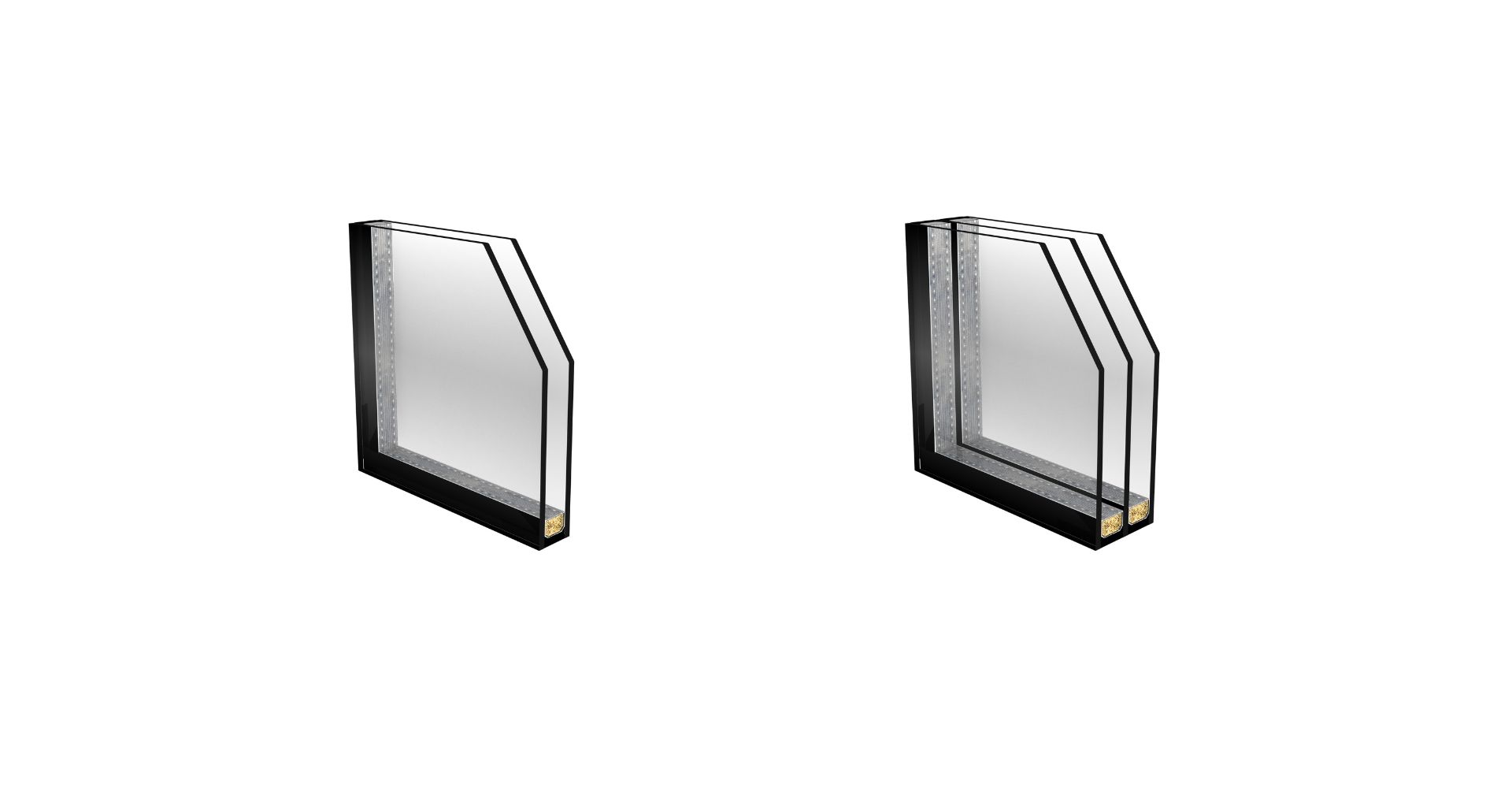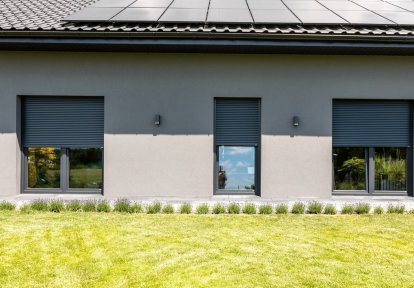How double glazing works
Double glazing has been the standard for many years in both residential and commercial buildings. A double-glazed window consists of two panes of glass separated by a gap, which is usually filled with air or an inert gas such as argon. This gap acts as an insulating layer, reducing heat transfer between the inside and outside a building. The effectiveness of double glazing is measured by its U-value, which indicates how well the window prevents heat from escaping. The lower the U-value, the better the insulation. Double-glazed windows significantly reduce energy loss, making homes more efficient, comfortable, and cheaper to heat during the colder months. They also help to reduce external noise, providing an additional layer of soundproofing. While double glazing has become the go-to choice for many, some homeowners are now considering triple glazing as an alternative to further improve their home's energy efficiency.
What makes triple glazed windows different?
Triple glazed windows, as the name suggests, incorporate an additional pane of glass and an extra insulating layer compared to double glazing. This results in three layers of glass with two air or gas-filled spaces in between. The added layer improves thermal performance by offering better insulation and lower U-values. This enhanced insulation makes triple glazing especially useful in colder climates, where keeping heat inside the home is crucial for comfort and energy efficiency. In addition to improved thermal properties, the extra pane provides better sound insulation, making triple glazed windows an ideal solution for homes located in noisy environments such as near busy roads or airports. However, the additional materials and manufacturing process required for triple glazing means it comes at a higher cost than double glazing, prompting many to ask, "Are triple glazed windows worth it?"

Triple glazing vs Double glazing - energy efficiency comparison
When comparing triple glazing vs double glazing in terms of energy efficiency, triple glazing comes out on top, particularly in cold climates. The additional pane and extra gap reduce heat loss more effectively, which can lead to noticeable savings on energy bills over time. Homes equipped with triple glazed windows are better insulated, helping to maintain a more stable indoor temperature year-round. This means less reliance on heating systems in winter and cooling systems in summer, resulting in lower utility bills. However, in more temperate climates, the difference between the two may not be as significant. While triple glazing does offer better insulation, in areas where winters are mild, the energy savings may not justify the additional cost. For many homeowners, double glazing remains an efficient and cost-effective solution, especially when installed with high-quality frames and professional fitting.
Noise reduction - an important factor
One of the often-overlooked benefits of upgrading to triple glazed windows is their superior noise reduction capabilities. For those living in noisy urban areas or near busy roads, this can make a substantial difference to the comfort of their home. Triple glazing offers better soundproofing than double glazing because the additional pane of glass and the thicker gaps between layers help to dampen noise. This is particularly beneficial for homes near airports, railways, or in densely populated cities, where noise pollution can disrupt everyday life. Double glazing still provides good noise reduction for most situations, but for those seeking maximum soundproofing, triple glazed windows are a worthwhile consideration. If peace and quiet are essential, the investment in triple glazing can make a significant impact on your overall living environment.
Cost and long-term value - are triple glazed windows worth it?
When deciding between double and triple glazing, cost is often a major consideration. Triple glazed windows are more expensive due to the extra materials and manufacturing process involved. However, the long-term benefits can outweigh the initial investment, particularly in terms of energy savings and increased comfort. Triple glazed windows may also add value to your home, as energy-efficient properties are becoming more desirable in the housing market. The question "Are triple glazed windows worth it?" ultimately depends on your specific situation. In colder climates, the energy savings can be significant, making the higher upfront cost justifiable. On the other hand, in milder climates, double glazing may provide sufficient insulation at a lower cost. Consulting a trusted window supplier can help you determine which option is best for your home, taking into account your budget, location, and long-term goals.
Both double and triple glazed windows offer clear advantages over single glazing, making them essential for homeowners seeking to improve energy efficiency and comfort. By understanding the key differences between these two options, you can make an informed decision that best suits your home’s needs and your future aspirations.











